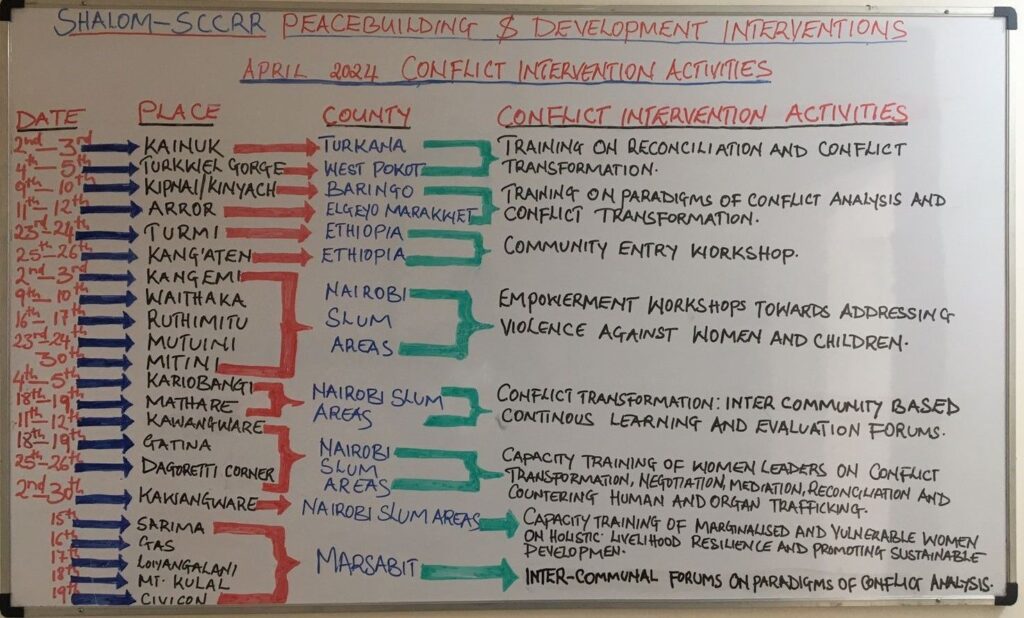
Harbenish (extreme left), Shalom team member Peterlinus with the Dassenach Elders during a workshop in Sies, Southern Ethiopia
By Mary Keoch
Todonyang in north western Kenya and Sies in southern Ethiopia are arid lands that are mainly pastoralist areas, beset by conflict, and insecurity. Relationships between the two dominant pastoralist communities in the region – the Turkana and Dassenach (otherwise called Merilles) have long been characterized by suspicion and hostility. Cattle raiding, battles for territories/borders, and the fishing waters of Lake Turkana (one of the world’s largest salty water lakes) which have long been a part of their lives, have greatly contributed to entrenching
these antagonistic perceptions. With the changing conflict trends in the past years in these regions, the hatred of these two communities towards each other has escalated to a point where neither can coexist with any form of understanding.
Since 2011, Shalom has been engaged in the resolution of conflict between the Turkanas and Dassenach. The complexity of this conflict is increased by the presence of international and regional boundaries. SCCRR has facilitated a series of conflict management and transforma-tion workshops for the Turkana and Dassenach communities that straddle the north west-ern Kenya and the south western Ethiopian borders. SCCRR’s work has involved building capacities of various opinion shapers from both communities with the hope that empower-ment of the aforementioned influential members from both communities with frameworks for conflict resolution could realize transformative change in both communities.
At the heart of these workshops is one man from the Dassenach community – Harbanesh – who has been working for Shalom as a translator. Harbanesh says that he undertook this journey because he is wholly committed to finding sustainable peace to the long-running conflict between the Turkanas and Dassenach. Harbanesh admits that eversince the inception of SCCRR’s intervention in the region, there is an improved level of trust between the two communities.
He recalls: “Before I began working as a translator for SCCRR, I would not even come across to the Turkana community in Todonyang. But through the platform of SCCRR, I am able to move between both communities and I have been accepted even by the Turkanas who I never trusted before.”
Shalom has been working with Harbenish in exploring the role of tolerance between the Turkana and Dassenachs in conflict management. In SCCRR’s interview with Harbenish, a recurring sentiment has been that these trainings have really helped to equip both communities with skills in conflict analysis and management.
Married with one wife and two children, Harbenish’s first hand experience of war and loss moved him to work tirelessly to broker peace between his community of Dassenachs and the neighbouring Turkana community. Although he admits that it is not been an easy task working for peace in both communities, he intends to forge ahead with conflict transformation efforts in partnership with SCCRR.

